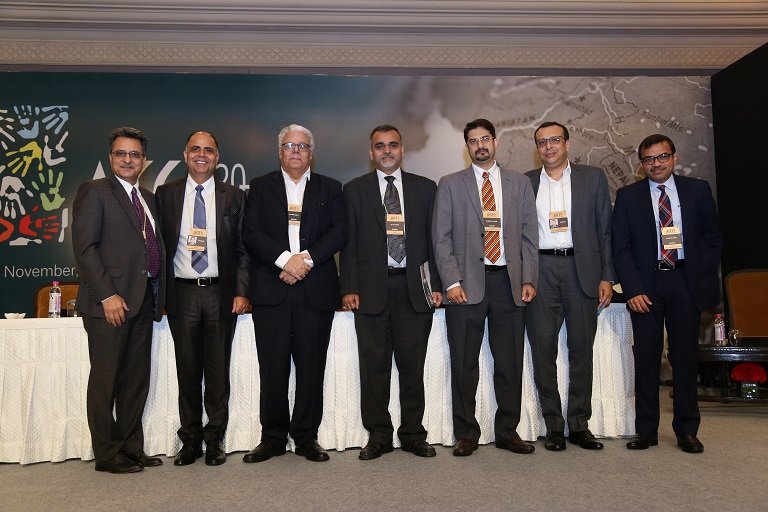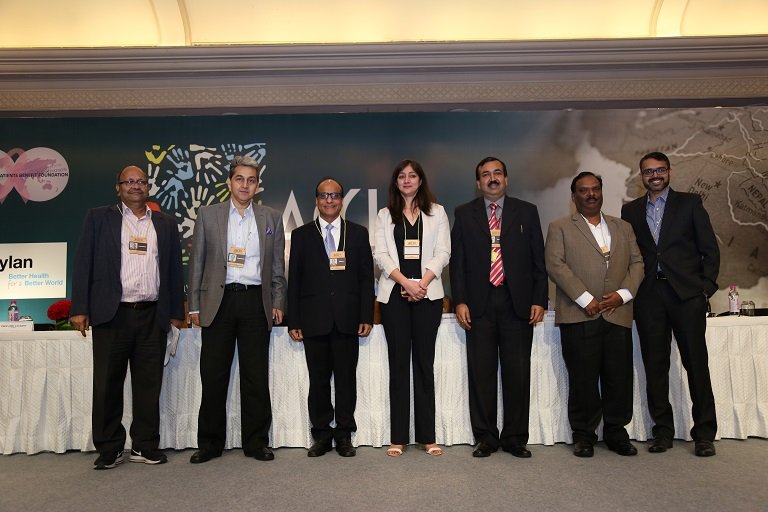Session 6 started off with discussing pricing for cancer care, health insurance for cancer treatment, government policies regarding cancer care. The conclusions drawn by the panel were to train oncologists on dealing with patients in a gentler way, bring down the prices of all the various aspects of cancer care, increase insurance penetration and coverage, and levy price control on a group of drugs.
Session 5 saw discussion of patent laws concerning pharmaceuticals, value based healthcare through prevention and product innovation, family ecosystem in cancer care, total management of cancer in all its aspects, and public-private partnerships to lead to optimum and affordable cancer care. The conclusions reached were free drugs for BPL patients, development of infrastructure in PPPs, and introduction of fair pricing of drugs without any loss of quality.
Session 4 opens with various modalities available for cancer diagnosis, their status, the affordability, the chances of early diagnosis with these modalities, and using out-of-the-box ideas to deal with these issues. Keeping all this in mind, we concluded that early diagnosis and screening techniques should be used in a more widespread fashion, spreading awareness and educating people about the cancers may increase the chances of reducing of mortality and incidence of cancer.
Session 3 starts with the valid points concerning lack of research in the field of cancer care: lack of money, manpower, and time, leading to very little research. Next point brought forward was public-private partnership leading to the reduction of cancer burden with the last speaker talking about a new model to provide highly subsidized cancer care to all. In conclusion, it was surmised that political will is required to ensure that research is incentivized and done, while public-private participation can reduce the cost of cancer care and research needs to focus more on screening techniques and early diagnosis techniques.
Session 2 brought up the points of the taxes being levied on machines used in cancer care, manufacturing outside India leading to increased cost of machines, orphan drug relevance and the requirement of biosimilars. The conclusion reached was that taxation on the machines should be reduced or removed, manufacture of those machines should move to India as joint ventures, change in orphan drug policy and the need for increased biosimilar production.
Session 1 brought forth various points and recommendations that could make cancer care affordable. We went from insurance concerns, policy changes, early detection, screening, to banning tobacco. We found out that nearly 70% of our cancer burden could be preventable. Finally, we concluded that insurance and banning tobacco could lead to decrease in cost and burden of cancer care.





